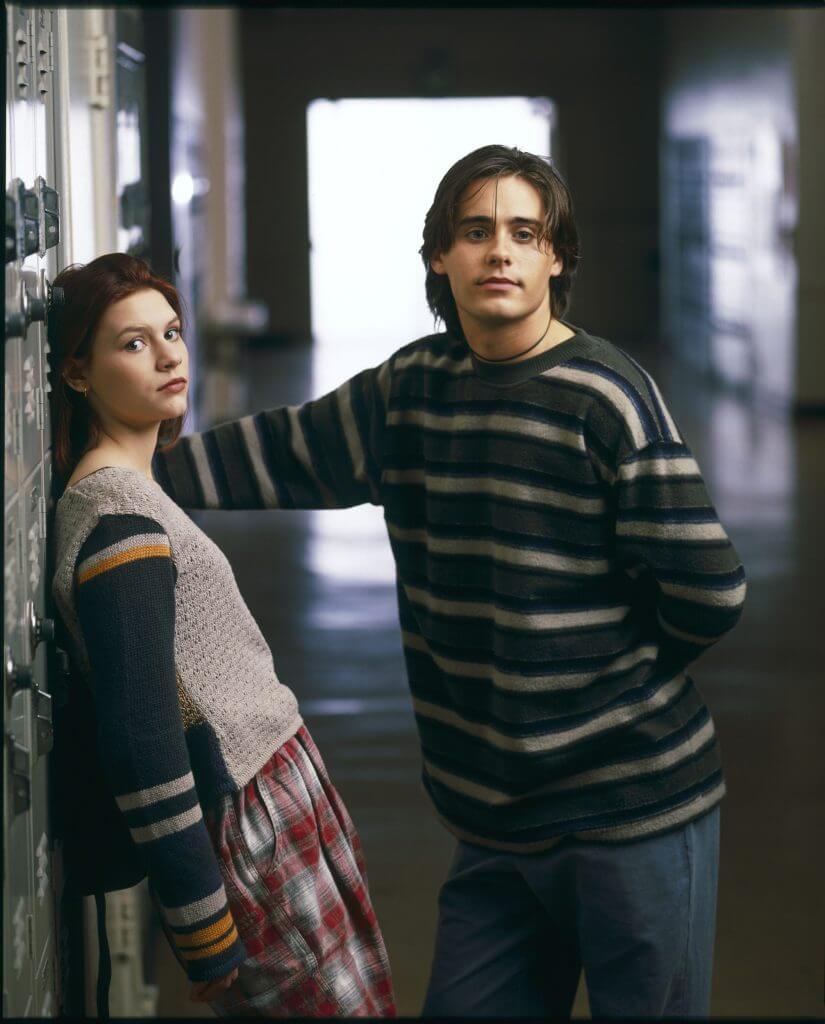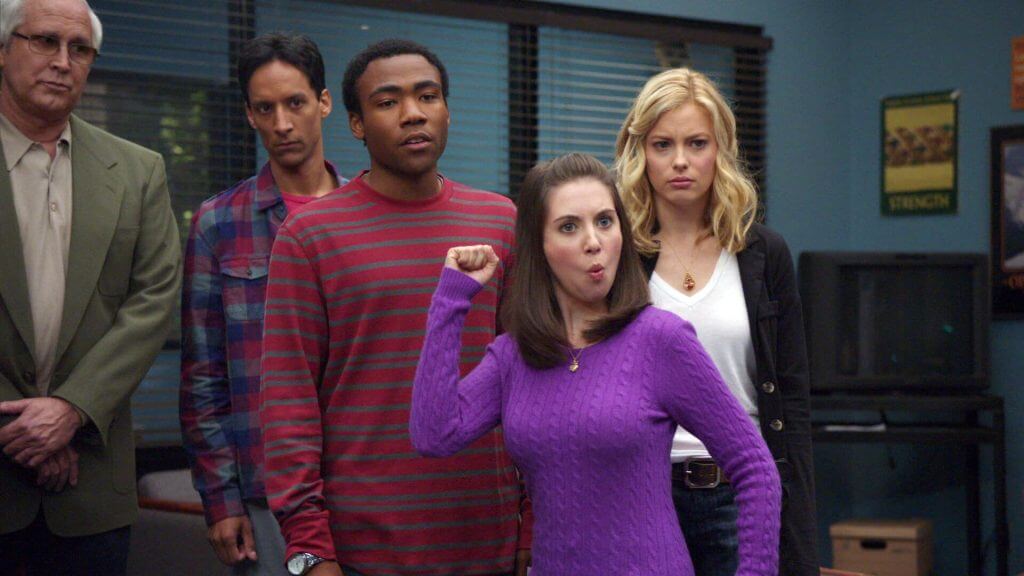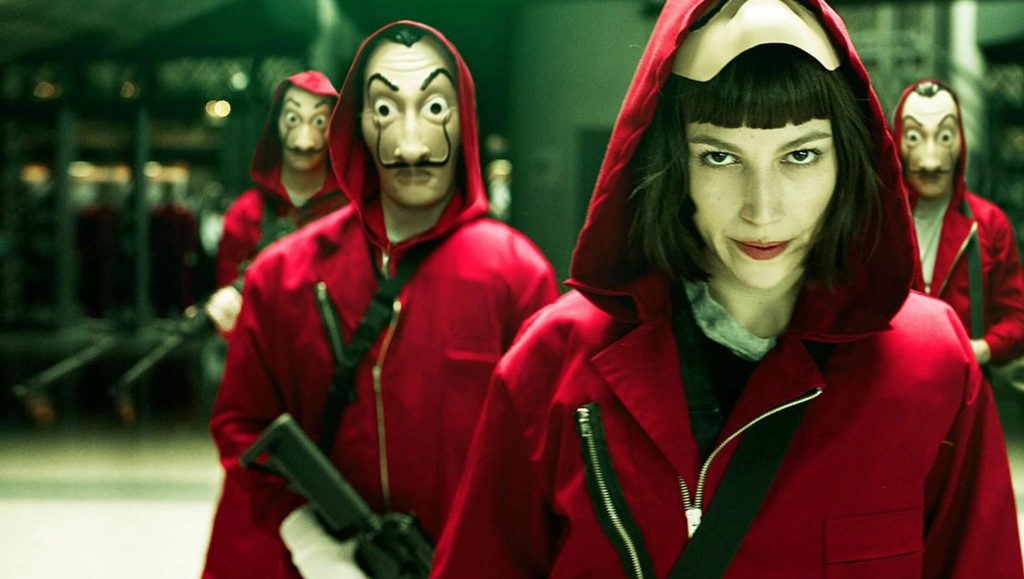By Marion Miclet | @Marion_en_VO
Not only is the term highly subjective, but it often takes years to gain cult status, as the fanatical fervor amplifies over time. Considering how our current TV landscape is all about abundance, accessibility and immediacy, what does it take today for a show to become cult?
Tell me what’s your favorite cult TV show, and I’ll tell you who you are… The Prisoner (hello Number 6), Star Trek (are you a Trekkie or a Trekker?), Twin Peaks (with a cup of bottomless coffee), Charmed (“the power of three will set us free”), Friends, Desperate Housewives… These fictions all occupy a solid spot in the pop culture pantheon–in their country of origin and worldwide, in a mainstream or in a niche genre, and after being abruptly canceled or aired for years.

Twin Peaks and a cup of “damn fine coffee“.
THE ELEMENTS OF CULT
The first element that catapults a TV series to the level of cult is its following: fans must be devoted and demonstrative. For instance, you can almost still hear the cries of “Jordaaan !” thirty years after the release of My So Called Life. Similarly to a religious cult where the charismatic guru is nothing without his followers, it’s from the ground up that these shows acquire a mystical aura. The loyalty can be demonstrated online (on forums way back when, on social networks today), by writing fanfictions (the corpus for Supernatural, which lasted 15 seasons, is impressive) and in person by going to Comic-Con and similar conventions. Bonus points if you are cosplaying Battlestar Galactica or The Handmaid’s Tale! More than mere entertainment, these stories become an extension of their fans’ personalities, and it is this type of zeal that has saved many fine shows from falling into television oblivion. So, the first essential element of cult is a devotion that goes beyond commercial and critical reason.

My So Called life with Claire Danes and Jared Leto
The second factor is the passage of time. It’s because Freaks and Geeks fans still hum Bad Reputation to this day, and because Pushing Daisies aficionados never lost hope for a musical spin-off that these series–even though they only amount to a handful of episodes–are included in most of the cult TV top 10s. Cult status consolidates as time goes by: because the initial fanbase acts as an echo chamber, the nostalgic appreciation continues to swell each year after the show has ended. It’s also in retrospect that the originality and audacity of shows that were underestimated when they came out can truly shine. Sometimes it has nothing to do with their quality (The Comeback comes to mind), perhaps the marketing was off or the subject too provoking. And if insta-cult series do exist (recent examples: Fleabag, Schitt’s Creek, Stranger Things), the majority are multi-generational successes built over the course of several decades (Friends, Doctor Who).
THE ALCHEMY OF LOVE
A third factor is the inclusion of meta moments, Easter eggs, breaking the fourth wall and similar inside jokes that make the viewers feel seen and connected to each other (Lost, The Office). You can even find shows that share the same cast (the Sherman-Palladino universe) or pay homage to other pop culture phenomenons (Community). Talking to Vultureabout his cult hit Arrested Development, creator Mitch Hurwitz declared: “I was doing a show that was all about rewatchability before there was technology that really provided that opportunity—before DVRs, etc.,” Today it would be impossible to attain the reputation of the series’ iconic first seasons without a profusion of online screen grabs (from GIFs to TikToks, IYKYK) and a healthy dose of resistance to parody (spoofed on SNL being the holy grail). If those three aspects are crucial to the definition of cult, a part of mystery and endless debates remain (GoT… is it cult or mythical?). Now that we know that obtaining this status takes time (for the series) and energy (from the viewers), what does the idea of cult mean in the age of Peak TV?

Community – “Six seasons and a movie!”
Considering how stretched our attention spans are with about 500 new scripted series launched in 2023 (compared to 210 in 2009), and considering how little time and space showrunners have to make their mark (105 cancellations in 2023 versus 20 or so in 2009), is it even still possible to conquer the heart of fans to the point of cultification? One major obstacle: because today’s TV landscape is so fractured (thanks to the competition between providers), as modern viewers we tend to develop many crushes towards perfect-on-paper highly-anticipated releases, or we easily fall back into the arms of an ex (those old, feel-good shows). But we don’t give a chance to the bad boys and underdogs populating our screens that could actually become the loves of our lives. Clearly, the gritty, rugged, unpolished quality of some of the most inventive television series also contributed to their elevation to cultdom (The Wire, It’s Always Sunny in Philadelphia). These characteristics seem to be all but absent from the content produced today. How did we get here?
THE NEED FOR A NEW MODEL
The concept of prestige TV solidified during the golden age of television in the early aughts (The Sopranos, Mad Men, Breaking Bad). Its definition is just as elusive as cult TV and yet, we know exactly what it means. Prestige TV series often borrow from the world of film by hiring A-list actors (Big Little Lies), by inflating the cost of production (The Lord of the Rings), by favoring the genre of biopics (Becoming Karl Lagerfeld), and by expanding the cinematic universe of Hollywood franchises like Marvel. Although these attributes are very attractive, the multiplication and uniformization of quality marks dilute the thrill associated with the discovery of a diamond-in-the-rough cult show. The consequence of this process is what James Poniewozik calls “mid-televison” in a New York Times article: “Mid is not a strict genre with a universal definition. But it’s what you get when you raise TV’s production values and lower its ambitions.” Will we still be talking about The Regime, Ripley, Expats or Mr. and Mrs. Smith after the next Emmy Awards wrap? Probably not.

La Casa de Papel
Which brings us to a fifth criteria of cult television: it makes you feel like you’ve ventured into unknown territory or inside a secret society with mahogany furniture and plush leather couches. In that regard, the explosion of streaming platforms is a double edge sword. On the one hand, they expose us to shows from all over the world with a high cult potential (for instance, with a Netflix subscription you can watch Squid Game, Money Heist, The OA, Sense8 and Call My Agent!). On the other hand, they squash the pleasure of autonomous discovery with heavy-handed recommendations (“when X show meets Y show” and their variety of tags). And let’s not forget the bulldozer marketing: are you aware of the existence of Bridgerton or have you been living under a rock? Worse, reboots have been de-cultifying emblematic pieces of television history such as Sex and the City.
Let’s mention here the peculiar case of Stranger Things, a series that didn’t even have to “prove itself” to become a cult favorite. Indeed, although it is a highly original creation, it contains nerdy outcast characters, mysterious monsters, endearing unknown or retro actors (Winona Ryder, Matthew Modine) and transgenerational pop culture references. The showrunners, the Duffer Brothers, being huge fans of cult films and genre cinema, Stranger Things had a leg up.

The Good Place, cult series to come ?
What would it look like then, in the era of “mid television,” to go back to the essence of cult? An interesting development is the return of high-concept series (even all the way to France)–meaning a fiction with an often incredible or outrageous plot that can be summed up in a sentence. For instance, Buffy the Vampire Slayer in the 1990s (especially at a time when complex, badass heroines were not yet a thing). Looking at the cult canon, it becomes clear that high-concept narration is yet another element of our definition, from Lost to Breaking Bad, Veronica Mars and Dead Like Me. Today, this renaissance has given us many TV gems such as The Good Place, The Last Man on Earth (gone too soon!), The Unbreakable Kimmy Schmidt, Severance and Dark, which have all been talked about with the exuberant reverence they deserve. Are these series officially cult? Well, do you remember the second rule? Only time can tell, so we’ll just have to be a little bit more patient…
